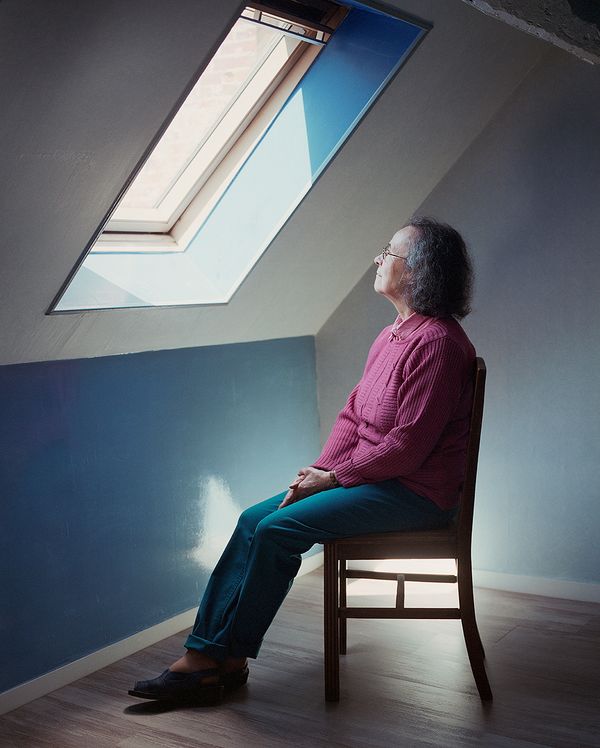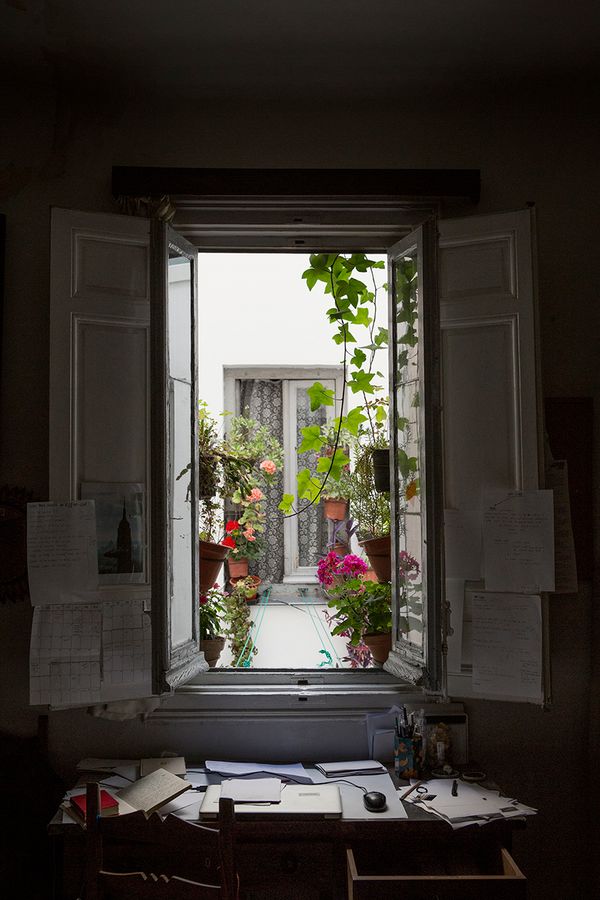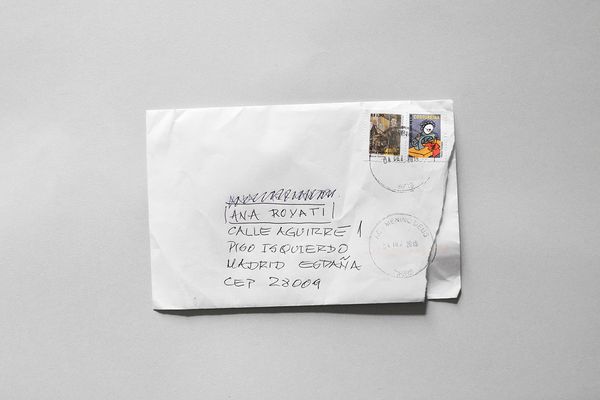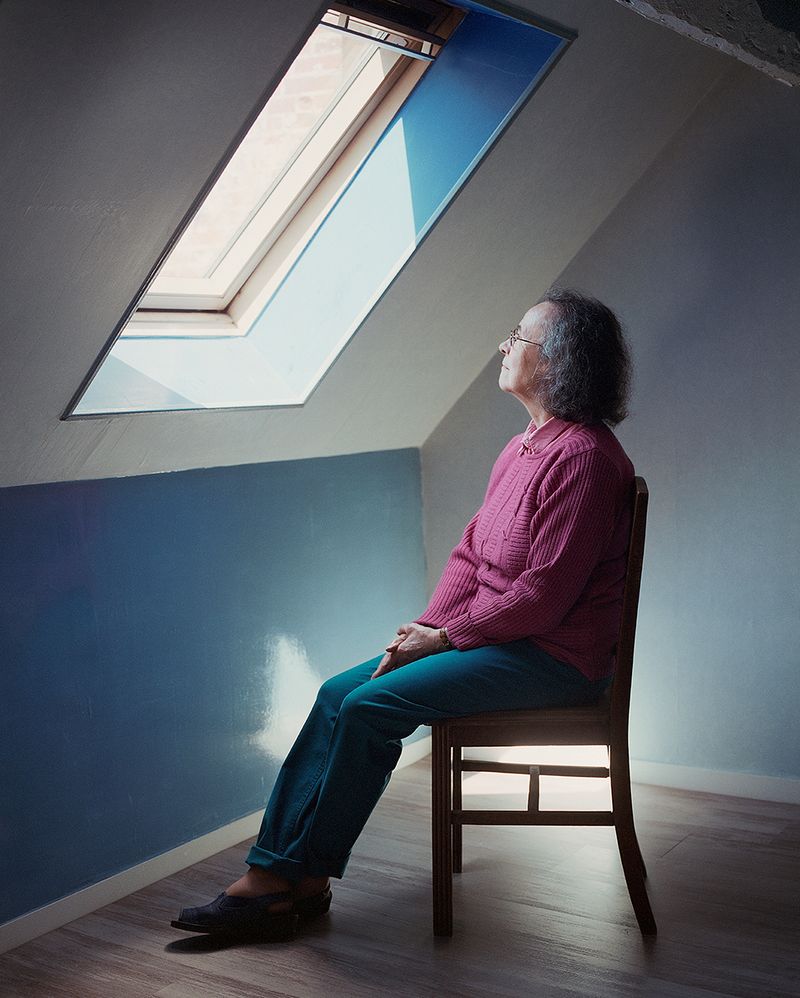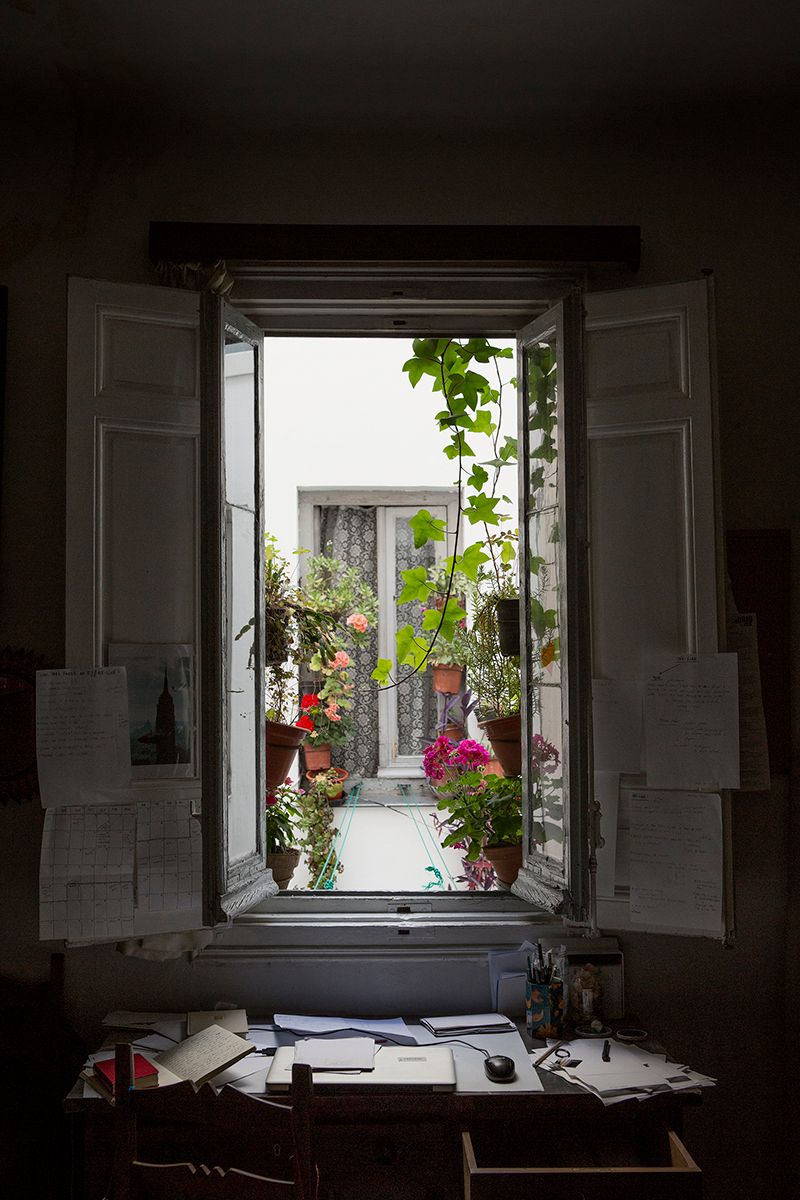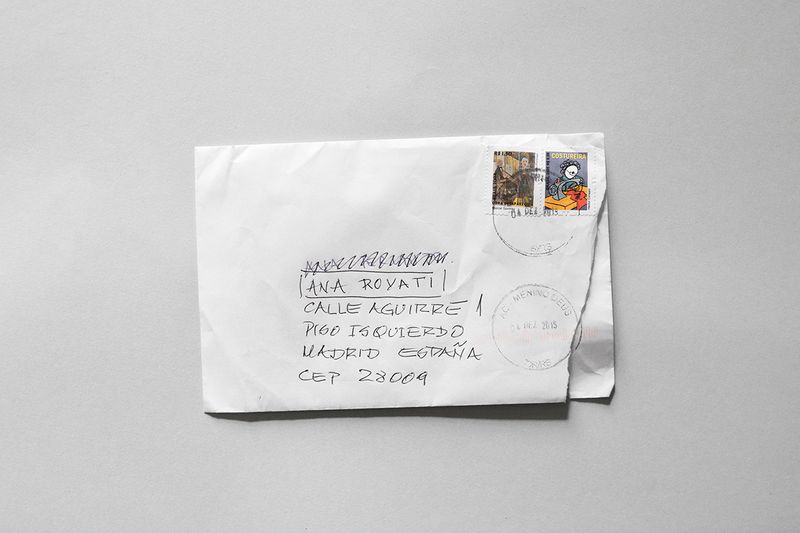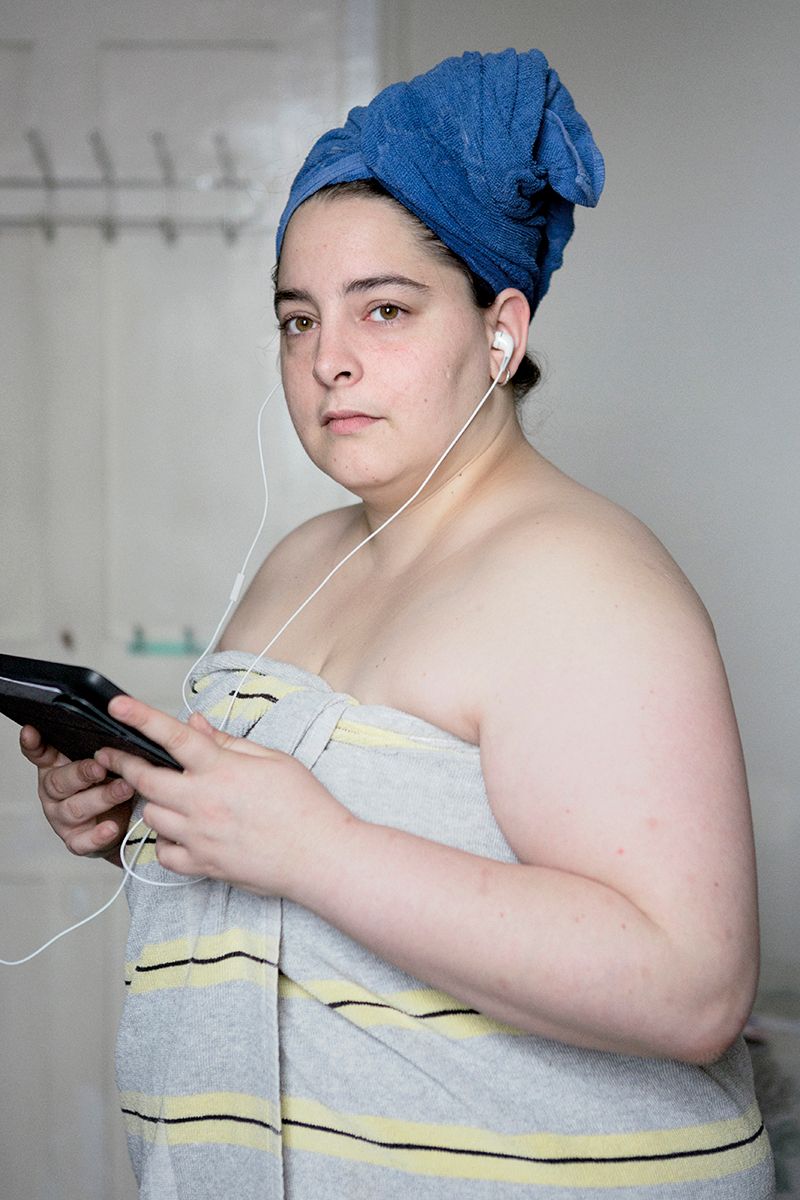Isolated from the Internet for a Whole Year
-
Published26 Dec 2019
-
Author
Read about Brazilian photographer Ana Oliveira Rovati’s 12-month experiment living without internet access while being based in the modern cities of Madrid and Rio de Janeiro. It’s a photographic research charged with challenges and offline appreciation.
Read about Brazilian photographer Ana Oliveira Rovati’s 12-month experiment living without internet access while being based in the modern cities of Madrid and Rio de Janeiro. It’s a photographic research charged with challenges and offline appreciation.
Offline is a project where Ana Oliveira Rovati questions the online contemporary connections. The networks that seem to be unstoppable. As a result, the Brazilian photographer decided to remove herself from the cybernetic world for one year. From the 2 December 2015 to the following year, she describes having become some kind of laboratory. Taking the impact of what this decision can have in a modern world like today. Besides, Ana continued to produce artistic work despite the internet restriction. Read about what this 12-month experiment was like.
Ana, with your project Offline you decided to withdraw yourself from the cybernetic world, something almost unthinkable. How was that like while you were living in a modern city like Madrid?
The project was planned to happen in a metropolis. That was a very important point. In hyper connected environments - found in cities such as Madrid and Rio de Janeiro, where the project took place – I asked myself what are the impacts of this non-stoppable the internet in my project, and, how is this represented in my daily life?
For me, a 30-year-old woman, it was a hard, but also, beautiful reality to face. The access to information has changed dramatically. As a result of unplugging myself, I was no longer receiving social invitations and I looked for jobs delivering my CV in person. Also, I started to use more the city: moving myself to buy tickets, to do research for books, to find out at what time a shop would be open. It felt like I disappeared from my friends, but at the same time I started having conversations that I hadn’t have for a long time. After two months when I got a job at a “bocatería” and started better understanding the rhythm of my “new life" this experience started to create some room for new discoveries.
In contrast, Brazil as in some many other places in the world the internet is still not so accessible as we expect it to be. There are questions like social inequality, geographic conditions and also generation constraints that are present. That means that it is still possible to find an “offline logic”, however, very often it comes as a way of exclusion.
© Ana Oliveira Rovati, from the series, Offline
While isolated from the internet did you encounter any challenges? for example, while researching and referencing artists? Could you share with us how was that like?
I did encounter a lot of challenges! Much more than I could have anticipated. The harder part it was getting the project to make sense to others than myself.
About my references, since the project started during a Master de Fotografia Desarrollo de Proyectos that I was doing in Madrid, I could use the library from the school, which helped me a lot. Also, before to decide the path that the project would follow, I sort of thought to become myself an experimental lab, and leave the internet to a side, which I had already referenced a lot previously. However, there is no doubt that it is much harder to find references offline and it requires a good amount of work to investigate. Yet, I was using everything I had available around me. As I was kind of limited, I took advantage from the resources that I had right there next to me, even though they were not only direct references from photographers and artists as we are used to find on digital resources. Some friends from non-artistic areas were fundamental with their contribution for discussions, pushing the boundaries of the research as well.
© Ana Oliveira Rovati, from the series, Offline
Would you say your creativity got affected in any way?
Yes, it was affected in a positive way. At one point I noticed that I was more sensitive and aware to my environments. After a difficult moment of adapting myself to that new way of life, I saw myself more relaxed and I learned how to deal with time in a different way. I started to have more moments of laziness and to have more time to think. Moreover, I started to write and read more and even to draw and to walk more. I could say that my perception in a general way got more powerful. The world started to call me for its attention.
Last year, you published a book of the series. Could you talk about how the book was designed/conceived to message the offline concept?
I believe that the choice of the project to become a book was already connected to the “offline” concept. I wanted to have a tangible object, with texture and weight; the story of the book itself is already an offline story. My relationship with the world while I was offline was indeed more physical.
I had in my mind a book that could offer a sort of intimacy feeling and that’s why I chose the small format. The book is 13x18,5cm when it is closed. The handcrafted hard cover just like the serigraphy was a choice that relates to the care that I wanted to be given to the object and also to whoever was reading it.
In the narrative construction I blend texts in a chronological way, images of items that I used - mobile phone, maps, newspaper, agenda with telephone numbers - and images of my day-by-day or how I was feeling within that day-by-day. At any moment I appear on the book, since one of my main feelings was that I had vanished to the world. I choose to show what was around me as part of what I was experiencing at that moment. Only the last picture on the book is a self portrait that I made in a photo booth that I used to pass by sometimes.
It was a massive challenge to edit the texts, files and photos all together. It was also difficult to select a cut out from that experience, without making the book too cold, but also not making it a day-book diary. Without mentioning limitations such as; money, variety of papers in Brazil and many other things.
© Ana Oliveira Rovati, from the series, Offline
Alongside the series and book, you produced a video as well, could you tell us more about it?
I’ve made a video about the gesture of writing a letter. During the project I used to create little daily provocations. I used to test social limits such as: instead of asking for someone’s Facebook (which I didn’t have) I used to ask for their address for sending a letter. After a lot of thinking and experiments I concluded that the gesture of writing a letter is an action that allows you to experiment another relationship with time, different to the one we are used to. Writing a letter set you in a situation of improvisation given that making a mistake when writing requires to erase or a restart. It is about dedicating yourself to the other and to yourself. It is an auto-reflection and a way of exposing yourself too, even without a selfie.
The letter requires some domains that are disappearing. So the video of the letter is also a provocation when I “teach” how to write it and I show somehow the time of writing, of thinking, of the day-by-day.
Did your previous projects influence you in any way to produce Offline?
I wouldn’t say that my previous projects have directly influenced me. Although, themes like research, absence and presence somehow appear in other works. Regarding contemporary relationships this one had been by my side for a while and a couple of years ago I was already interviewing elderly people and doing research about the change on the logic of how we relate to time, to space and also to the other people next to us after the commercial inception of the internet. But I hadn’t already found a shape to this until I produced Offline. This was my first project directly related to that theme. It took me a while to mature that restlessness and manage to get the material organised. But now, I’ve got the feeling that I could make many other projects within that theme.
-------------
Ana Oliveira Rovati, is a Brazilian photographer currently based between Brazil and Spain. Offline, is Ana's first long term project and self-published photo book. You can follow her on Instagram.
Verónica Sanchis Bencomo is a Venezuelan photographer and curator based in Hong Kong. In 2014, she founded Foto Féminas, a platform that promotes the works of female Latin American and Caribbean photographers. Follow her on Twitter and Instagram.
-------------
This article is part of In Focus: Latin American Female Photographers, a monthly series curated by Verónica Sanchis Bencomo focusing on the works of female visual storytellers working and living in Latin America.
